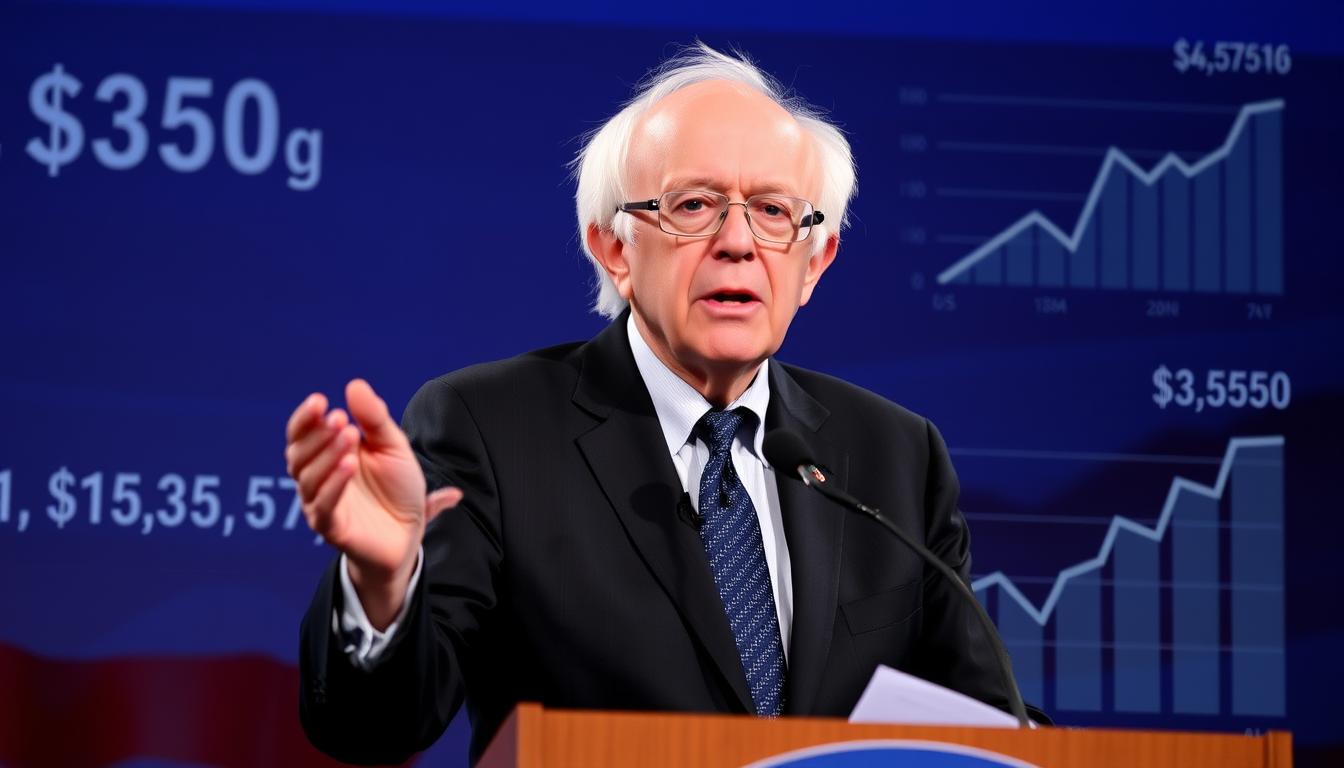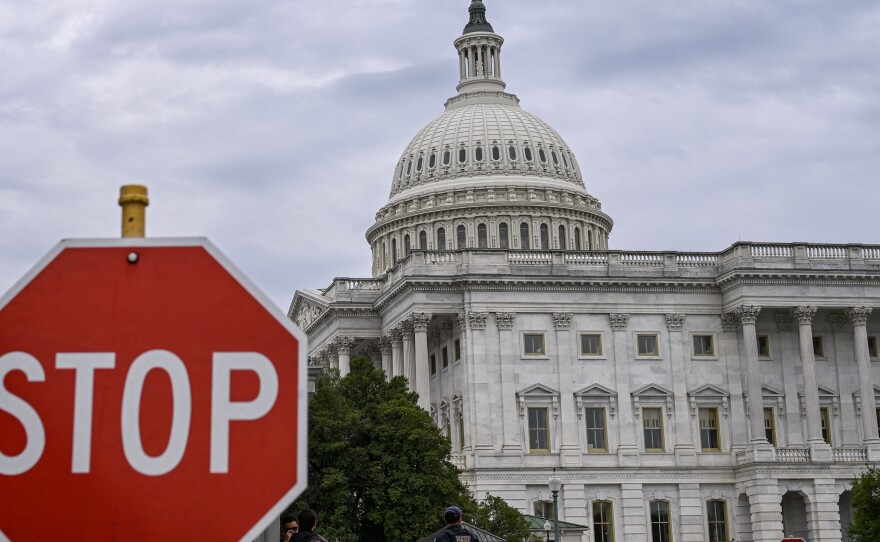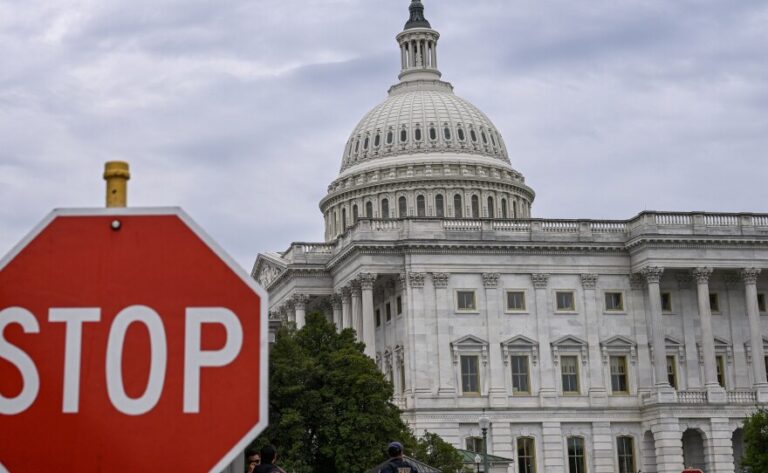Bernie Sanders’ Current Net Worth
Senator Bernie Sanders has accumulated his wealth primarily through his congressional salary, book royalties, and real estate investments.
According to the most recent financial disclosures and analysis from multiple sources, Bernie Sanders’ net worth is estimated to be between $2 million and $3 million as of 2025. This figure represents a significant increase from earlier in his political career, with the growth primarily occurring after his 2016 presidential campaign.
Public records from the Senate Financial Disclosure database indicate assets valued between $1.5 million and $2.5 million. However, estimates vary between reporting sources:
| Source | Estimated Net Worth | Year of Estimate |
| OpenSecrets.org | $513,513 | 2018 |
| Financial Samurai | $2.5-5 million | 2025 |
| Finance Monthly | $2 million | 2025 |
The discrepancies in these estimates stem from different methodologies and the inclusion or exclusion of certain assets. For instance, some analyses include the capitalized value of Sanders’ pension benefits, while others focus solely on his reported assets and liabilities.
Breakdown of Bernie Sanders’ Income Sources
As a U.S. Senator, Bernie Sanders earns an annual salary of $174,000. Having served in Congress since 1991 (first as a Representative, then as a Senator from 2007), this government salary has provided a consistent income base throughout his political career. Over his 30+ years in Congress, Sanders has earned approximately $5 million in salary alone.
Book Royalties
Following his 2016 presidential campaign, Sanders authored several books that became significant income sources. His most successful publications include:
- Our Revolution (2016) – Sold over 220,000 copies
- Bernie Sanders Guide to Political Revolution (2017) – Sold approximately 27,000 copies
- Where We Go From Here: Two Years in the Resistance (2018) – Sold approximately 26,000 copies
According to financial disclosures and reporting by Forbes, these book deals generated at least $1.7 million in income, with some estimates suggesting the total could be higher. This publishing success represents the largest single contributor to Sanders’ wealth accumulation in recent years.
Real Estate Holdings
Sanders owns three properties with a combined estimated value of $1.7-2 million:
Burlington, Vermont Home
Primary residence purchased in 2009 for $405,000, now valued at approximately $600,000. Sanders paid off the mortgage in 2018 using proceeds from his book sales.
Washington, D.C. Row House
Purchased in 2007 for $489,000, currently valued between $850,000-$1,000,000. Financial records indicate a remaining mortgage of approximately $350,000.
Lake Champlain Vacation Home
In 2016, Sanders purchased a vacation home in North Hero, Vermont for $575,000. The property features four bedrooms and 500 feet of lakefront access on Lake Champlain. This purchase was made after selling a family property that had belonged to his wife’s family.
Investments and Retirement Accounts
Financial disclosures reveal that Sanders and his wife Jane have several retirement accounts and investments:
- U.S. Senate Federal Credit Union accounts valued at approximately $375,000
- TIAA Traditional Annuity worth approximately $75,000
- Thrift Savings Plan (federal government’s version of a 401(k))
- Additional mutual funds and retirement investments
While the exact value of all these investments isn’t publicly disclosed, financial experts estimate they could total between $500,000 and $1 million based on Sanders’ age, income history, and typical contribution patterns.
Comparing Sanders’ Wealth to Average Americans and Other Politicians
With a net worth of approximately $2-3 million, Bernie Sanders is significantly wealthier than the average American but ranks relatively modestly among his Senate colleagues:
| Comparison Group | Median Net Worth | Sanders’ Percentile |
| Average American Household | $121,700 | Top 5% |
| Americans Age 75+ | $254,800 | Top 3% |
| U.S. Senators | $3.2 million | Below median |
According to OpenSecrets.org, Sanders ranked 67th in wealth among U.S. Senators in their last comprehensive analysis. This places him in the bottom half of Senate wealth, despite being among the top 5% of Americans by net worth.
For context, several senators report net worths exceeding $100 million, including Mitt Romney, Mark Warner, and Rick Scott. Sanders’ wealth is modest by Senate standards but still places him well above the financial status of most Americans.
Sanders’ Financial Transparency and Tax Returns
During his presidential campaigns, Bernie Sanders faced both criticism and praise regarding his financial transparency:
Tax Return Disclosures
In April 2019, Sanders released 10 years of tax returns, revealing his increased income following his 2016 presidential campaign. This disclosure showed that Sanders and his wife Jane earned over $1 million in both 2016 and 2017, primarily from book royalties.
“I wrote a best-selling book. If you write a best-selling book, you can be a millionaire, too,” Sanders stated in response to questions about his increased wealth during a Fox News town hall in April 2019.
Senate Financial Disclosures
As required by law, Sanders files annual financial disclosure forms that provide information about his assets, liabilities, and income sources. These forms are publicly available through the Senate Ethics Committee and show consistent reporting of his properties, investments, and book royalties.
Financial transparency advocates generally view Sanders’ disclosures positively, noting that he has complied with all legal requirements and voluntarily released tax returns beyond what is legally mandated. However, some critics have pointed out that the Senate disclosure requirements themselves lack the granularity to provide a complete financial picture of any senator.
Public Perception of Sanders’ Wealth
Bernie Sanders’ financial status has generated discussion due to his progressive policies and criticism of wealth inequality. Public perception generally falls into two categories:
Supportive Perspectives
- Sanders earned his wealth through legitimate means (salary, book sales)
- His net worth is reasonable for someone of his age and career length
- His policies target billionaires and ultra-wealthy, not modest millionaires
- He continues to advocate for higher taxes that would affect his own bracket
Critical Perspectives
- Perceived contradiction between wealth criticism and personal millionaire status
- Questions about owning three homes while advocating for housing equality
- Concerns about income surge from book deals leveraging political position
- Criticism of “socialism for thee, capitalism for me” narrative
Sanders has addressed these perceptions directly, maintaining that his policy positions focus on systemic issues rather than individual wealth accumulation through legitimate means. He continues to advocate for higher taxes on the wealthy, including tax brackets that would increase his own tax burden.
Financial Controversies and Criticisms
Several controversies have emerged regarding Bernie Sanders’ finances over the years:
The “Three Houses” Criticism
Critics have highlighted Sanders’ ownership of three homes as inconsistent with his democratic socialist principles. Sanders has responded that his Burlington home is his primary residence, the DC property is necessary for his work in Congress, and the lake house was purchased partly with proceeds from selling a family property inherited by his wife.
Campaign Finance Questions
During the 2016 campaign, the Federal Election Commission (FEC) sent the Sanders campaign letters questioning some campaign donations and expenditures. These administrative inquiries were resolved without penalties, though they received media attention at the time.
Jane Sanders’ College Presidency
A controversy involving Sanders’ wife Jane and her former role as president of Burlington College received significant attention. The college closed due to financial difficulties after a real estate deal she orchestrated. A federal investigation was conducted but concluded without charges, finding insufficient evidence of wrongdoing.
Financial experts and political analysts generally agree that Sanders’ personal finances show no evidence of impropriety or unusual wealth accumulation patterns for someone of his position and career length. His wealth primarily derives from his congressional salary, pension benefits, and book royalties – all standard and transparent income sources.
Conclusion: Understanding Sanders’ Wealth in Context
Bernie Sanders’ net worth of $2-3 million places him in an interesting position: wealthy compared to most Americans but relatively modest among his Senate colleagues. His financial journey reflects a career politician who saw a significant late-career income boost through successful book publishing following national prominence.
The apparent contradiction between Sanders’ wealth and his criticism of economic inequality requires nuanced understanding. His policy proposals primarily target the ultra-wealthy and corporate interests rather than individuals with modest wealth accumulated through traditional means. Sanders continues to advocate for higher taxes that would affect his own tax bracket, demonstrating consistency between his personal finances and policy positions.
As with many public figures, perceptions of Sanders’ wealth often align with pre-existing political views. Supporters see his financial status as reasonable and earned through legitimate means, while critics view it as hypocritical given his rhetoric about wealth inequality. The objective financial data suggests that Sanders has accumulated wealth through conventional channels available to long-serving public officials who achieve prominence and publishing success.
Stay Informed on Political Finance
Get the latest analysis on political figures’ wealth, campaign finance, and economic policy delivered to your inbox.
Frequently Asked Questions About Bernie Sanders’ Net Worth
How did Bernie Sanders become a millionaire?
Bernie Sanders accumulated his wealth primarily through his congressional salary over 30+ years, pension benefits, and book royalties following his 2016 presidential campaign. His books “Our Revolution,” “Bernie Sanders Guide to Political Revolution,” and “Where We Go From Here” generated at least
Frequently Asked Questions About Bernie Sanders’ Net Worth
How did Bernie Sanders become a millionaire?
Bernie Sanders accumulated his wealth primarily through his congressional salary over 30+ years, pension benefits, and book royalties following his 2016 presidential campaign. His books “Our Revolution,” “Bernie Sanders Guide to Political Revolution,” and “Where We Go From Here” generated at least $1.7 million in income.
Does Bernie Sanders pay the taxes he advocates for?
Yes, Sanders pays all taxes required under current law. His released tax returns show he paid an effective federal tax rate of 26% in 2018. He advocates for higher tax rates on wealthy Americans, including tax brackets that would increase his own tax burden if implemented.
How does Sanders’ wealth compare to other presidential candidates?
Sanders’ $2-3 million net worth is relatively modest compared to many presidential candidates. For context, Joe Biden’s net worth is estimated at $9 million, Elizabeth Warren at $12 million, and Donald Trump’s is reported to be in the billions. Sanders ranks among the less wealthy major presidential candidates from recent elections.
.7 million in income.
Does Bernie Sanders pay the taxes he advocates for?
Yes, Sanders pays all taxes required under current law. His released tax returns show he paid an effective federal tax rate of 26% in 2018. He advocates for higher tax rates on wealthy Americans, including tax brackets that would increase his own tax burden if implemented.
How does Sanders’ wealth compare to other presidential candidates?
Sanders’ -3 million net worth is relatively modest compared to many presidential candidates. For context, Joe Biden’s net worth is estimated at million, Elizabeth Warren at million, and Donald Trump’s is reported to be in the billions. Sanders ranks among the less wealthy major presidential candidates from recent elections.













